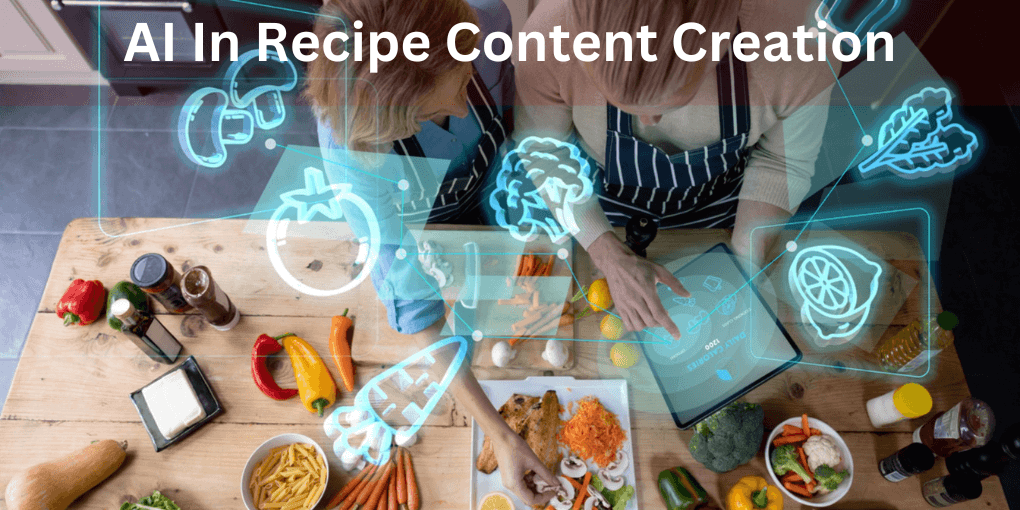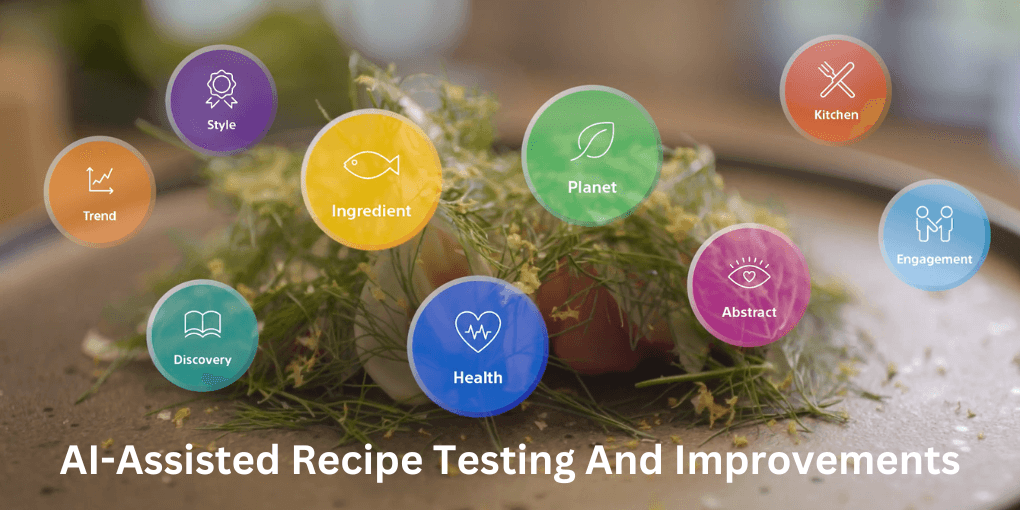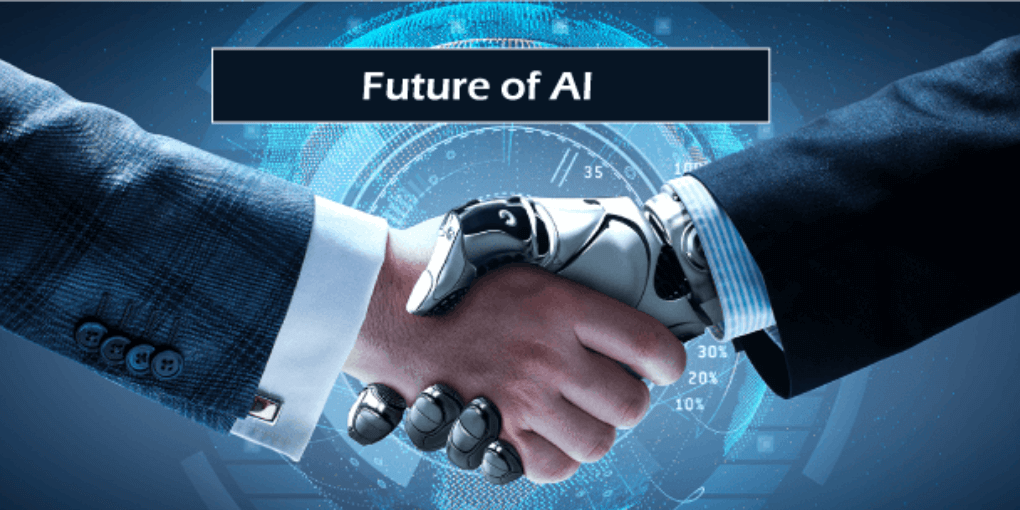Unleashing the power of AI in recipe content creation. Learn how artificial intelligence is transforming the way recipes are developed, curated, and personalized in our informative blog post.

Artificial intelligence (AI) is rapidly transforming the way we create and consume content, including recipes.
Recipe content creation is a challenging task that requires expertise in culinary arts, writing, and formatting.
With AI, we can automate many of the time-consuming tasks involved in creating recipes, such as ingredient measurements, conversions, and step-by-step instructions.
This technology can also help us personalize recipes to individual preferences and dietary restrictions and suggest ingredient substitutions or pairings.
In this article, we will explore some of the ways that AI is revolutionizing recipe content creation and how it can benefit the food industry and consumers alike.
Benefits of using AI in recipe development
There are several benefits of using AI in recipe development, including:
- Efficiency: AI can automate many of the time-consuming tasks involved in recipe development, such as ingredient measurements, conversions, and step-by-step instructions, making the process faster and more efficient.
- Personalization: AI can help personalize recipes to individual preferences and dietary restrictions, suggesting ingredient substitutions or pairings based on user input.
- Creativity: AI can spark new ideas and creativity in recipe development, using algorithms that explore flavor combinations and ingredient pairings that humans might not have considered.
- Consistency: AI can help ensure consistency in recipes, minimizing errors and increasing accuracy across multiple recipes.
- Accessibility: AI can make recipe development more accessible to people with limited culinary knowledge or experience, providing step-by-step guidance and suggestions along the way.
The Role of AI in Personalizing Recipes
AI can play an important role in personalizing recipes to individual preferences and dietary restrictions.
By analyzing data and user preferences, AI can provide customized recipe recommendations, ingredient substitutions, and serving sizes. Here are some ways that AI can personalize recipes:
Dietary restrictions
AI can identify and offer recipe options based on dietary preferences or restrictions, such as vegan, gluten-free, or low-sodium diets.
Ingredient substitutions
AI can suggest alternative ingredients based on user preferences or ingredient availability.
Flavor profiling
AI can analyze a user’s flavor profile and suggest personalized flavor combinations or adjustments to existing recipes.
Time and budget constraints
AI can suggest recipes based on time and budget constraints, such as quick and easy recipes or budget-friendly meals.
Cultural preferences
AI can suggest recipes based on a user’s cultural background or food preferences to provide a personalized recipe experience.
AI-assisted Recipe Testing and Improvements

AI can assist in recipe testing and improvements, which is crucial to ensure recipe accuracy and consistency. Here are some ways that AI can help:
Recipe testing
AI can provide predictive analysis on potential recipe outcomes, identifying and controlling for variables that could affect the outcome. This can help to streamline the recipe testing process and reduce the number of trials needed.
Ingredient substitutions
AI can suggest ingredient substitutions based on the ingredient’s flavor, texture, and nutritional properties. This can help to optimize the recipe for different dietary needs and preferences.
Nutritional analysis
AI can analyze the nutritional content of a recipe, identifying areas for improvement or adjustment to ensure that it meets dietary guidelines and individual needs.
Crowd-sourced feedback
AI can analyze user feedback and preferences on a recipe and suggest modifications that might improve the recipe’s quality, taste, or ease of preparation.
Machine learning
AI can perform machine learning analysis on recipe data to identify patterns in ingredient use or recipe development, helping to provide insights for further recipe improvements.
Enhancing Recipe Search Using AI
Using AI to enhance recipe search can greatly improve the user’s experience by providing more accurate and personalized results. Here are some ways AI can be applied to recipe search:
Natural Language Processing
AI can analyze and understand natural language queries, so users can search for recipes using their own words and phrases instead of having to use specific keywords.
Personalization
Based on a user’s search history and preferences, AI can suggest recipes that are more tailored to their taste and dietary restrictions.
Image Recognition
AI can scan recipe images and identify key ingredients and cooking methods, making it easier for users to find dishes they are interested in.
Recommendations
By analyzing user behavior and search history, AI can recommend related recipes, ingredients, and kitchen tools that would enhance the user’s cooking experience.
Predictive Analytics
AI can use data analysis and machine learning algorithms to predict which recipes are likely to be popular and offer them to users.
Streamlining Recipe Creation and Workflow with AI
AI can also be used to streamline recipe creation and workflow, making the recipe development process more efficient and less time-consuming. Here are a few ways AI can be applied:
- Ingredient Suggestions – AI can analyze a recipe’s ingredients and suggest substitutions or alternatives based on dietary restrictions, availability, or personal preferences.
- Recipe Writing – AI can generate written recipe instructions that are clear, concise, and easy to follow, using natural language generation technology. This can help make recipe writing faster and more consistent.
- Recipe Scaling – AI can adjust ingredient amounts and cooking times when scaling recipes up or down. This can help save time and reduce errors when creating recipes for different serving sizes.
- Cooking Automation – AI can use machine learning algorithms to optimize cooking times and temperatures, as well as suggest cooking methods based on the ingredients in a recipe and the user’s cooking equipment.
- Nutrition Analysis – AI can analyze the nutritional content of a recipe and provide users with a breakdown of the nutrients and calories in each serving. This can help users make more informed decisions about what they eat.
The Future of AI in Recipe Content Creation

The future of AI in recipe content creation is promising, with many potential applications that could revolutionize the industry.
Here are a few examples of how AI could be further utilized in recipe content creation in the future:
- Personalization – AI can tailor recipe content to individual users’ preferences, dietary restrictions, and health concerns, providing a more customized experience.
- Food Pairing – AI can use data analysis and machine learning to identify complementary ingredient pairings that are not yet commonly used, creating new and innovative recipe combinations.
- Augmented Reality – AR technology can be used to enhance the recipe content experience by providing users with a virtual guide that displays recipe steps and ingredient lists, making the cooking process more interactive and efficient.
- Natural Language – AI can analyze and interpret natural language, allowing users to ask recipe-related questions in their own words and receive accurate and relevant answers.
- Sustainability – AI can suggest recipes and ingredients that are more sustainable and environmentally friendly, in response to the increasing global concerns of climate change.
Risks and Challenges in AI-based Recipe Development
There are several risks and challenges associated with AI-based recipe development that should be taken into consideration. Here are a few:
Lack of Creativity
AI is programmed to follow specific rules, which may limit creativity in recipe development. Chefs and cooks may feel a sense of loss in not being able to exercise their creativity and intuition in recipe development.
Data Biases
AI relies on large data sets to make decisions. Without proper care and attention to data sources and integrity, AI can perpetuate and even amplify existing biases in recipes and ingredient choices.
User Privacy
AI collects and stores user data to personalize search results and provide better recommendations. Privacy risks may arise if this data is not properly stored or used.
Accuracy
AI is only as good as the data it is trained on. If the data used to develop the AI algorithm is incomplete or inaccurate, the AI may produce subpar recipe recommendations.
Lack of Human Touch AI may take away from the human element and emotional connection that people have with food and cooking, which can negatively impact the recipe development process and user satisfaction.
Successful Implementation of AI in Recipe Creation
One example of the successful implementation of AI in recipe creation is the popular cooking app, Kitchen Stories.
Kitchen Stories uses AI to help users discover and create recipes that fit their preferences and dietary restrictions.
They use natural language processing to help users do a more intuitive search and incorporate image recognition technology, which enables users to search for recipes based on the photos they upload.
This leads to highly personalized search results with more accurate recommendations.
Kitchen Stories also uses machine learning to gauge user feedback from recipe ratings and comments, making personalized recommendations about recipe inspiration and suggestions for ingredients.
They have an AI-powered chatbot that guides users through cooking techniques and suggests personalized tips and tricks to improve their cooking skills.
Conclusion
In conclusion, AI holds a lot of promise when it comes to enhancing and streamlining recipe development.
By implementing AI-driven technology and tools, chefs and home cooks can more easily find and create personalized recipes that meet their unique preferences and dietary requirements.
AI can adjust ingredient amounts and cooking times, suggest substitutions, and offer nutritional analyses, all of which can save significant amounts of time and reduce the occurrence of errors.
While it is important to be aware of the challenges associated with AI integration (such as data biases and potential privacy risks), the benefits are clear, and AI has already shown success in popular recipe development apps such as Kitchen Stories.
Ultimately, those in the food industry should continue to stay on top of the latest advancements in AI technology if they want to capitalize on the many opportunities that are emerging in this space.

This blog post is written by AI Genie, Powered by ContentGeni’s cutting-edge AI technology. It is able to quickly and efficiently produce high-quality written content on a wide range of topics. While AI Genie may not have a physical body, it is constantly learning and evolving to provide the best possible content for its readers.